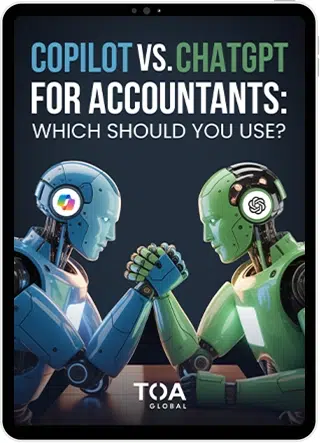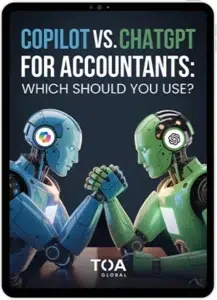You get an AI, this guy gets an AI, everybody gets an AI!
In recent years, more and more accounting professionals have warmed up to the idea of artificial intelligence being their compadre when tackling tasks. AI, as noted in many LinkedIn posts and blog articles, is redefining how people work. For accountants, it’s automating routine tasks like data entry and providing deeper insights for financial reporting.
Despite this shift, some are still unsure about its place in the accounting profession.
In this guide, we’ll discuss the role of artificial intelligence in accounting, exploring use cases and challenges during implementation. We’ll also show how firms can integrate AI into existing workflows and spotlight the most effective AI-powered tools available in the market.
Table of Contents
What is AI in Accounting - Use Cases
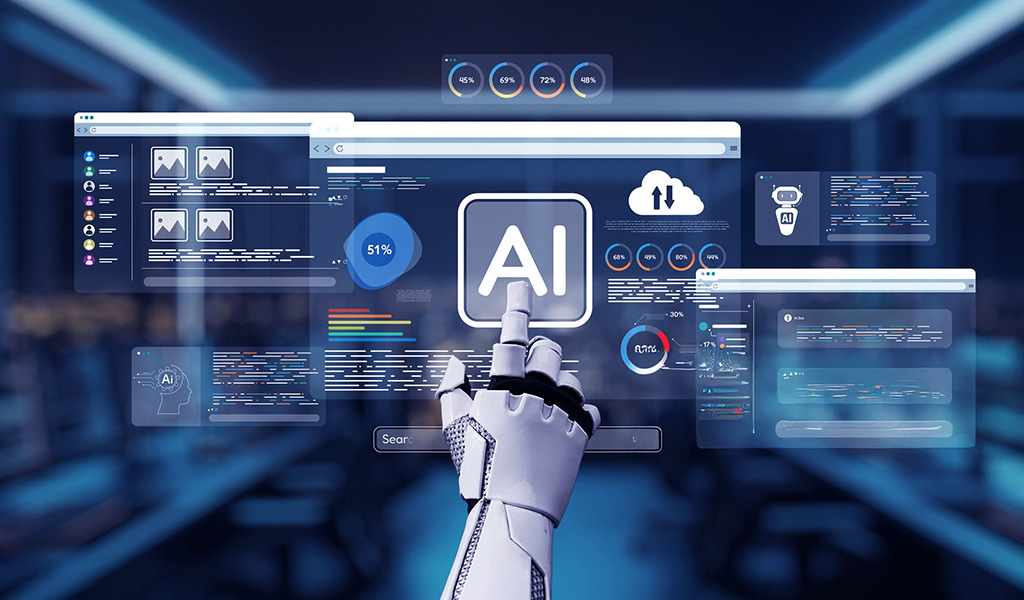
When people talk about artificial intelligence in accounting, most automatically think of ChatGPT. While it is a powerful generative AI tool for accountants, or almost anyone for that matter, it’s only a subset of AI.
AI encompasses a wide range of technologies designed for enhancing and automating routine tasks, with machine learning (ML), natural language processing (NLP), and robotic process automation (RPA) being the most useful to accounting firms.
The Big 4 accounting firms are leading the way in adopting AI tools. For their part, Deloitte has launched AI Advantage for CFOs. This solution uses Amazon Bedrock and Anthropic’s Claude to automate finance processes and generate valuable insights from multimodal data (i.e., documents, images, audio, and videos).
Here are the most prominent use cases of AI in accounting:
Automating Data Entry and Other Routine Tasks
One of the most basic applications of artificial intelligence is cutting down grueling tasks that take up a quarter or more of your accounting team’s time. These include manual data entry and transaction categorization.
Wouldn’t it be nice to have AI accounting software sift through mountains of data, completing tasks with speed and precision? You reduce the risk of human error and, more importantly, the burden of manual workload.
Simplifying Invoice Processing
Advanced accounting software uses machine learning capabilities to automatically extract financial data from invoices, match them with purchase orders, and route them through appropriate approval channels. Apart from reducing data entry mistakes, this setup shortens approval times, leading to faster, more secure payments.
Enhancing Financial Reporting and Analytics
Machine learning algorithms also support predictive analytics. They analyze financial data for patterns and trends that might not be immediately apparent, preventing accountants from making blind decisions, particularly in budgeting and financial planning.
Improving Financial Audits and Compliance Monitoring
Fraud detection in financial audits is a critical aspect of accounting that can benefit immensely from artificial intelligence. AI technology can continuously monitor transactions for anomalies, flagging suspicious activities that might indicate fraud.
Moreover, AI can help ensure firms adhere to regulatory requirements by automating compliance checks and audits.
Optimizing Business Communications
Artificial intelligence can help with business communications in more ways than one:
- Providing personalized client interactions
- Answering common questions
- Offering financial advice based on real-time data analysis
- Scheduling meetings
- Creating agendas
- Setting up reminders
- Drafting emails and reports
This improves the client experience and allows firms to offer more tailored and proactive services, boosting client satisfaction and retention.
Implementing AI in Accounting Workflows

Making the most of artificial intelligence means taking a deliberate approach to using it in augmenting human expertise for improved productivity and service quality. Here are tips on how accounting teams can integrate AI into their existing workflows:
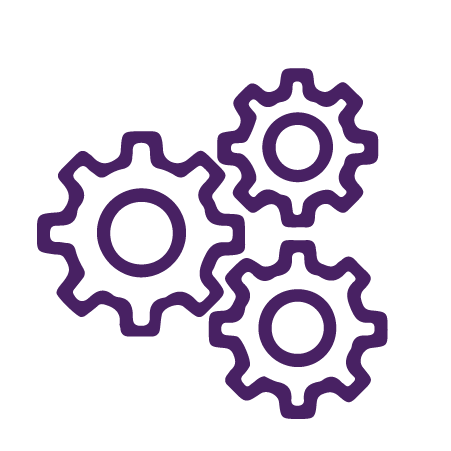
Assess Current Processes
Identify areas where AI can add the most value. You can start with high-impact repetitive tasks that can be completed by automation. Examples include data entry, invoice processing, and basic financial reporting.
Evaluate Data Quality
If your accounting data is all over the place, so will your financial statements, even with AI technology. So, before implementing any solution, identify gaps in how you collect data and establish consistent data entry standards across all systems.
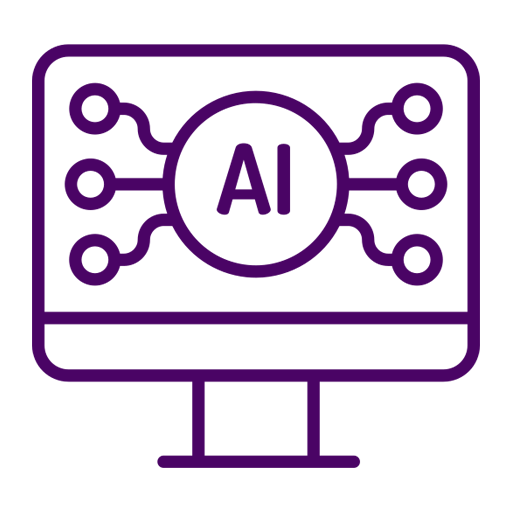
Invest in the Right Tools
Whether it’s for automating data entry or advanced analytics, ensure that the AI-powered accounting software you choose is scalable and can integrate smoothly with your existing systems. Otherwise, you create silos and workflow inefficiencies that defeat the purpose of investing in AI in the first place.

Train Your Team
This includes providing technical training and helping them use AI insights for better decision-making and client service. Consider also creating ongoing learning programs to keep your accounting team updated on new AI trends, capabilities, and best practices. This way, you address potential skills gaps that might stymie growth and client satisfaction.

Monitor and Optimize
Implementing AI is not a one-time task. Continuously monitor the performance of AI systems and adjust as needed. Gather feedback from your team to identify challenges and opportunities for further optimization.

Maintain Human Oversight
For all its sophistication, AI is built on human intelligence and requires the same for its potential to be truly realized. Make sure that your team understands how AI tools and systems work and can identify when human intervention is necessary.
Accordingly, develop clear policies for data handling and quality assurance. By establishing a clear governance framework, you stay faithful to professional standards while reaping the key advantages of AI expertise.
AI Challenges Confronting Accounting Firms
Like any other implementation, modern accounting firms face challenges when using AI. Here are a few:
- High Implementation Costs - Investing in software is only one part of the AI equation, which can already be a lot when you want to use premium features. There's also training, system integration, and ongoing maintenance. Add all of them up, and you could end up with considerable expense.
-
Security and Privacy Concerns - Earlier, when we said, "everybody gets an AI," we also meant cybercriminals. AI is being used to build on and create new cyberattacks.
Take the case of the finance employee at a multinational firm tricked into remitting $25 million to scammers. He attended a video call with a nonexistent chief financial officer and colleagues, who turned out to be AI-generated deepfakes.
That's why accounting firm owners must ensure that their chosen solutions meet stringent security standards and comply with data protection regulations. - Data Quality Issues - Stressing a previous point, AI technology is only as good as the data it processes. If you don't make time for data cleanup and standardization, AI might do it for you, generating new sets of data along the way. That's one more headache you shouldn't have to deal with.
AI-Powered Tools for the Accounting Profession
As a bonus, we’ve gathered some of the most noteworthy accounting AI software that can enhance your practice, along with their standout features.
Vic.ai helps accountants by significantly reducing manual workload and increasing accuracy in financial processes. Its ability to autonomously oversee complex accounting tasks makes it a valuable tool for firms aiming to boost productivity and focus on strategic functions.

Best Features:
- It automates a range of accounting tasks, from invoice processing to expense management.
- Vic.ai’s AI-driven analytics offers real-time insights and financial data processing, allowing for more immediate decision-making.
- AI-driven approval workflows ensure that only relevant transactions are flagged for human review.
Digital Rapport is an AI-powered, video-driven financial reporting tool designed for accountants to educate their clients about their business performance.
This tool facilitates healthy client relationships by automating and enhancing interactions, ensuring timely and relevant communication. For firms, this means more personalized services and becoming trusted advisors.

Best Features:
- Digital Rapport uses AI to automate client communication and engagement, offering personalized and visually engaging short videos about their financial performance.
- The platform also provides insights into client behavior and preferences, helping firms tailor their services more effectively.
Docyt AI offers a unified tech stack that streamlines your firm’s accounting processes, boosting efficiency so you can focus on delivering real-time accounting insights.

Best Features:
- Docyt uses AI to manage, categorize, and extract data from documents, streamlining the entire doc workflow.
- It also automates bookkeeping tasks by capturing and processing data directly from receipts and invoices.
- Lastly, Docyt offers real-time sync of financial data, ensuring that you always have the latest information at your fingertips.
Karbon AI automates routine communication tasks for accountants, saving time and enhancing productivity with summarization features and automatic email composition. This improves client service and supports internal collaboration.

Best Features:
- Karbon AI provides enhanced client communications with summarization features and automated email draft responses.
- It can also adjust the tone of outgoing emails to match professional standards.
- This AI tool integrates with Karbon’s existing tools to enhance workflow efficiency.
Blue Dot is a tax compliance platform that automates VAT recovery and taxable employee benefits, ensuring global tax compliance and enhancing data accuracy. It reduces manual labor by leveraging AI and integrates seamlessly with expense management systems, streamlining operations and improving financial reporting efficiency for accountants.

Best Features:
- VATBox accurately identifies and calculates all eligible VAT expenses.
- Tracking, reporting, and calculating taxable employee benefits.
- The Corporate Income Tax feature automates tax compliance by analyzing expenses, integrating with existing systems, and using customizable rules to streamline the process.
Will AI Replace Accountants?
We’d be remiss not to acknowledge this pervasive fear surrounding AI in the accounting profession, especially after dedicating much real estate to its benefits and relevant solutions.
The notion that AI will replace human accountants, rendering the profession obsolete, is a misunderstanding of how this advancement functions in the accounting world. While AI can take over a variety of tasks, it cannot replicate, much less replace, the very elements that make accounting ultimately a human endeavor.
On Intuition or Gut Feel
AI may be unbeatable in processing and organizing heaps of data, but it cannot apply nuanced judgment or think creatively. It has neither, but the people who power the accounting industry do. So, despite human errors, business leaders continue to entrust their clients’ data to accountants who use expertise honed over years of experience to understand different contexts in giving nuanced advice and navigating complex ethical considerations.
On Connections that Endure
Accounting teams build relationships with their clients based on trust and personalized service. While AI can answer FAQs, it can’t replicate the empathetic and personal touch that accountants bring to their client relationships.
Embracing AI in Accounting
Once a thing of dystopian fiction, AI is now a part of everyday life and work for many people, including the accounting industry. By automating repetitive tasks, offering enhanced data analysis, and providing deeper insights, accounting AI is evolving the modern-day accountant into more strategic, analytical, and advisory functions. This evolution positions accounting professionals as business partners, not just service providers.
Combine AI with Offshore Accounting Talent
The future of accounting isn’t an either/or situation. As an industry that always sees a strong demand for efficiency and quality, using artificial intelligence as a powerful complement to human accountants will set firms up to respond better.
Combining AI with outsourced accounting services might just be the ultimate solution for your practice. At TOA Global, you gain access to specialized expertise that can transform your accounting operations alongside AI.
Ready to experience the advantages of expert talent and AI-powered tools at once? Schedule a call with us today.














